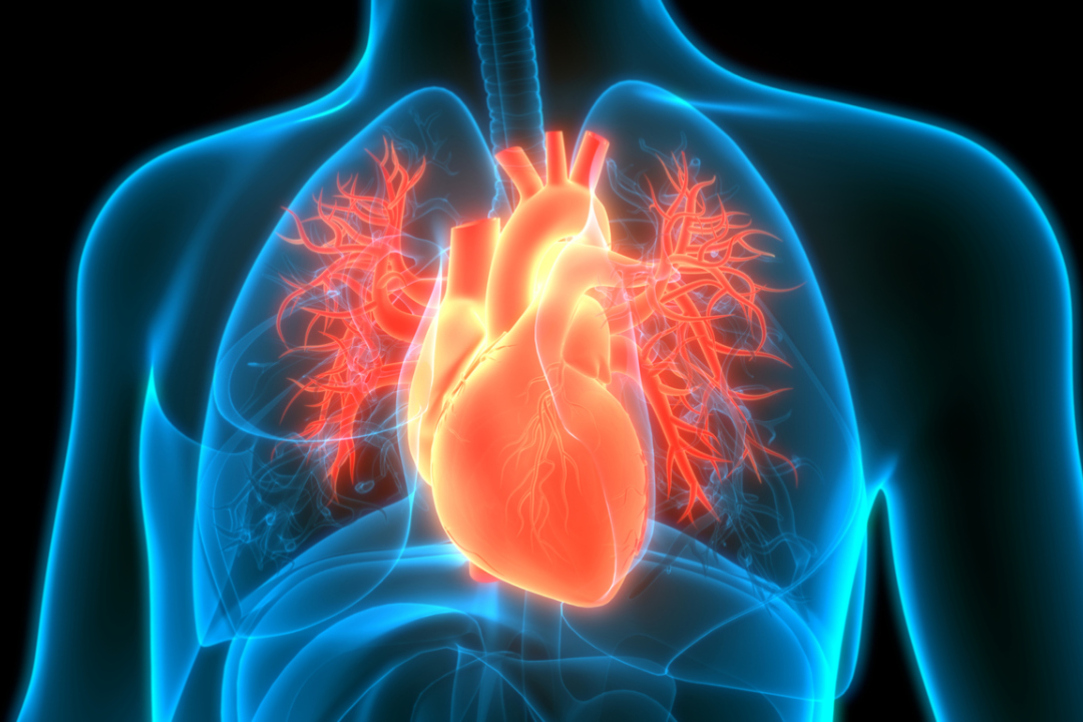HSE University and Its Partners Will Create a Portfolio of Cardiodiagnostic Products

The strategic session ‘Development of Cardiodiagnostic Products: From Sequencing to Medical Practice’ was recently held at HSE University. The event focused on identifying the market requirements for technology and products developed in the field of genetic testing for cardiovascular diseases.
Cardiogenetics studies the genetic predisposition to cardiovascular diseases. Thanks to modern genome sequencing methods and artificial intelligence technologies, researchers can determine genetic factors associated with cardiovascular diseases, such as cardiomyopathies, hereditary forms of hypercholesterolemia, channelopathy, pulmonary hypertension, etc. The introduction of artificial intelligence (AI) technologies into cardiogenetics makes it possible to create personalized approaches to the treatment of patients.
HSE University has been engaged in research within the field of cardiodiagnostics and bioinformatics for about 10 years. The International Laboratory of Bioinformatics has developed a unique algorithm for bioinformatic processing of the results of genome-wide sequencing in order to identify a wide range of pathologies of the cardiovascular system. Research conducted in the laboratory is aimed at improving the accuracy of diagnosis, prediction and treatment of cardiac diseases based on genetic data, which contributes to personalization and more effective medical practice.

Head of the International Laboratory of Bioinformatics at the AI and Digital Science Institute of HSE Faculty of Computer Science
‘Russian researchers, together with industrial and medical partners, are working on the development of domestic cardiogenetic products, but high expenses at all stages of this process, from sequencing to processing and interpretation of the data, significantly slow down this process. Despite these difficulties, cardiogenetics continues to develop, as it’s important for the diagnosis and treatment of cardiovascular diseases. Russia has successfully launched the first Cardiogenetics Centre in Yakutia. Our laboratory is working on the introduction of machine learning technologies in this area, which will speed up data processing and improve the accuracy of predictions. The strategic session helped us not only to determine the vector of development for further research, but also to establish contacts with partners for the implementation of projects to create cardiogenetic testing products.’
The HSE Centre for Technology Transfer organised and conducted two group discussions as part of the strategic session ‘Development of Cardiodiagnostic Products: From Sequencing to Medical Practice’. The first discussion considered the requirements of business and medical institutions for products for the genetic testing of cardiovascular diseases, and the second was about models of cooperation between the university and industry partners for the formation of genetic cardiodiagnostics products, and overcoming barriers in promoting these products.
This interaction increases the applied significance of the research conducted at HSE University: the results are used both in joint products and in the products of the partner company. All the experts spoke about the relevance of genetic testing for the diagnosis of cardiac diseases, and also discussed existing problems in this area. The main difficulties in the development and implementation of cardiogenetic products are as follows: high cost of genetic testing, its absence in clinical recommendations, the complexity of the registration procedure and, as a result, the lack of registration certificates, as well as the unwillingness of Russian healthcare to introduce such products to both doctors and patients. To overcome these problems and introduce genetic testing into medical practice, HSE University can become a platform for cooperation between scientists, doctors, medical organisations and the government.

Director of the HSE Centre for R&D Commercialization and Technology Transfer
‘The market for cardiodiagnostic products based on genetic technologies is relatively young. Nevertheless, it has already established two main directions: the creation of products related to the treatment of cardiovascular diseases, and products focused on the prevention of such diseases. The participants of this discussion came to the conclusion that cooperation to develop common approaches and requirements for created products and technologies is relevant more than ever. Such cooperation should significantly accelerate the testing of new products and increase the trust of the medical community.’
Experts from the following companies and organisations took part in the strategic session: HSE University, the Almazov National Medical Research Centre, the Russian Medical Academy of Continuous Professional Education of the Ministry of Health of the Russian Federation, Medical Research Center for Therapy and Preventive Medicine of the Ministry of Healthсare of the Russian Federation, First Moscow State Medical University , the companies Genotek, GENETIKO, Albiogen, Evogen, Neuroiconics Assistive.
The application of AI technologies in medicine will be one of the topics of the ‘Fall into ML’ machine learning conference, which will be held at HSE University on October 26-28, 2023. The conference has been organised by the Faculty of Computer Science and the HSE AI Research Centre. More information about the conference can be found here.
See also:
'Biotech Is Booming Worldwide'
For more than five years, the International Laboratory of Bioinformatics at the HSE Faculty of Computer Science has been advancing cutting-edge research. During this time, its scientists have achieved major breakthroughs, including the development of CARDIOLIFE—a unique genetic test unmatched worldwide that predicts the likelihood of cardiovascular disease. With the active participation of HSE students, including doctoral students, the team is also working on a new generation of medicines. In this interview with the HSE News Service, Laboratory Head Maria Poptsova shares insights into their work.
From Sequencing to Constructing a Cardio Panel: Summer School in Cardiogenetics
From August 19 to 29, the Continuing Professional Development Centre of the HSE Faculty of Computer Science hosted the summer school 'Cardiogenetics: From Sequencing to Constructing a Cardio Panel,' organised in collaboration with the Russian Academy of Sciences' Institute of Analytical Instrumentation (IAI) and Institute of Spectroscopy (ISAN), and the Syntol company. The summer school was conducted within the framework of the Federal Research Programme for Genetic Technologies Development for 2019–2027 (Project 15.IP.21.0004).
Genotek Becomes a Partner of HSE’s Master’s Programme ‘Data Analysis in Biology and Medicine’
In September 2024, employees of Genotek Medical Genetics Centre will act as instructors and supervisors for students’ term papers and master's theses in the ‘Data Analysis in Biology and Medicine’ programme at the HSE Faculty of Computer Science. Genotek’s expertise in Big Data analysis and bioinformatics processing of sequencing data has allowed the revision of the curriculum to include modern data analysis methods in biology and medicine.
'We Are on Track towards Personalised Medicine'
The International Laboratory of Bioinformatics of the HSE Faculty of Computer Science and its partners in the Genetics of Cardiovascular Diseases Consortium are working on a new project titled ‘From Sequencing to the Development of a Cardiogenetic Test’ (in Russian). The Head of the International Laboratory of Bioinformatics, Maria Poptsova, talks about the project, the results obtained, and plans for the future.
‘Interest in the Application of Machine Learning in Bioinformatics Is Growing by the Year’
On August 28–30, HSE University’s Faculty of Computer Science held the 4th Summer School on Machine Learning in Bioinformatics. This year, 670 people registered for the event, and over 300 visited in person. The programme included lectures and seminars on various spheres of bioinformatics: applied bioinformatics and the bioinformatics of DNA, RNA, and proteins; elementary genomics; modern methods of data analysis and molecular biology. The lectures were complemented by practical tasks aimed at different levels of knowledge.
Research Reveals RNA's Role in Cancer Progression
An international group of scientists and medical specialists, including HSE researchers, examined the role played by microRNA (miRNA) and long non-coding RNAs on the progression of ovarian cancer. Having analysed more than a hundred tumour samples, they found that miRNA can prevent cell mutation while long non-coding RNAs have the opposite effect of enabling such mutations. These findings can help design new drugs which act by regulating miRNA concentrations. The study was published in the International Journal of Molecular Sciences.
HSE University Hosts Third Summer School on Machine Learning in Bioinformatics
Between August 23rd and 25th, the HSE Faculty of Computer Science held its annual summer school on machine learning in bioinformatics. After two years of being held online, the school returned to an offline format for this year. Over three days, more than 120 participants attended lectures and seminars by leading experts in the field from institutions such as HSE University, Skoltech, AIRI, MSU, MIPT, Genotek, and Sber Artificial Intelligence Laboratory.
Coronavirus Was Brought into Russia at Least 67 Times
Many people in Russia believe that they had COVID-19 as early as December 2019 or January 2020. Is it possible to find out when the epidemic really started in Russia and where it came from? Bioinformatics provides an answer.
HSE and EMC Corporation Will Study the Market of Bioinformatics in Russia
Higher School of Economics and EMC Cloud and Big Data R&D Center in Moscow (Skolkovo) have signed a cooperation agreement, which includes the creation of a Project and Study Group in Bioinformatics. HSE students and lecturers are a key part of the group.


